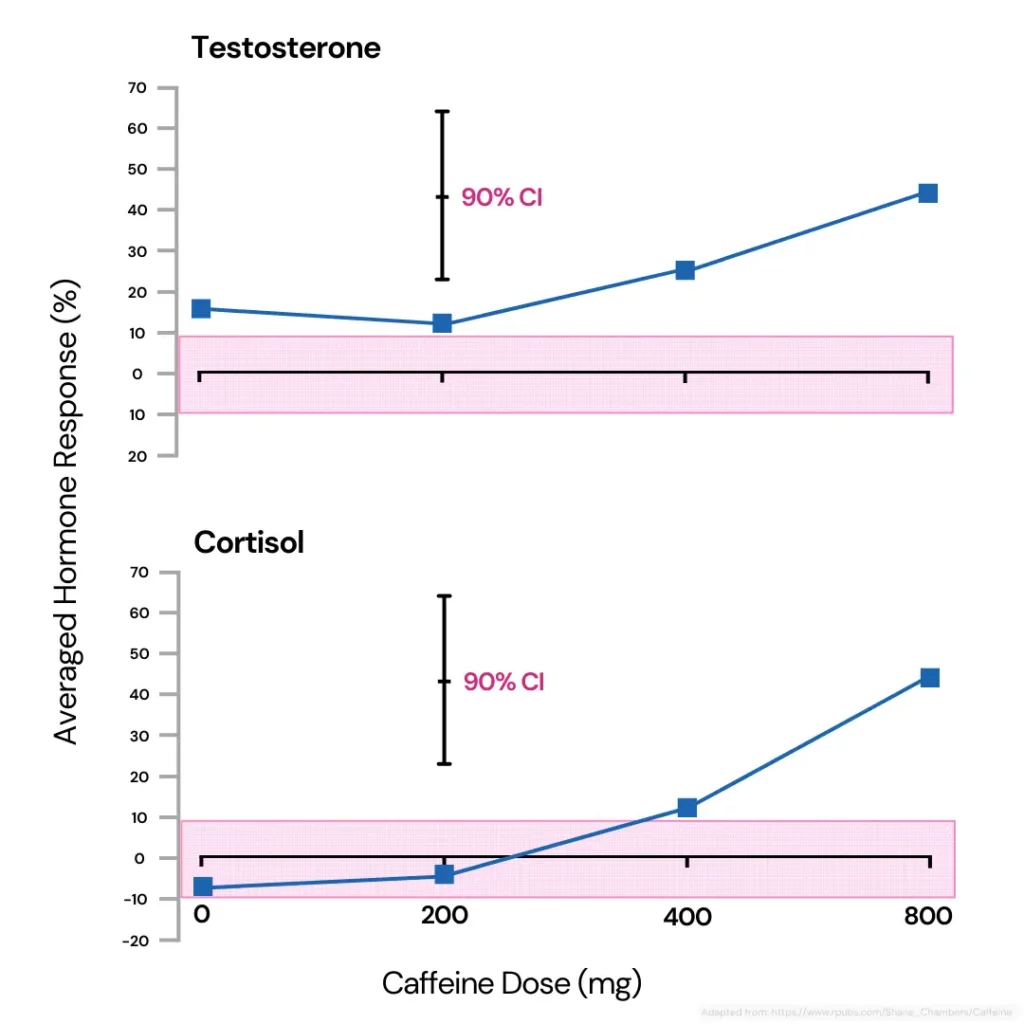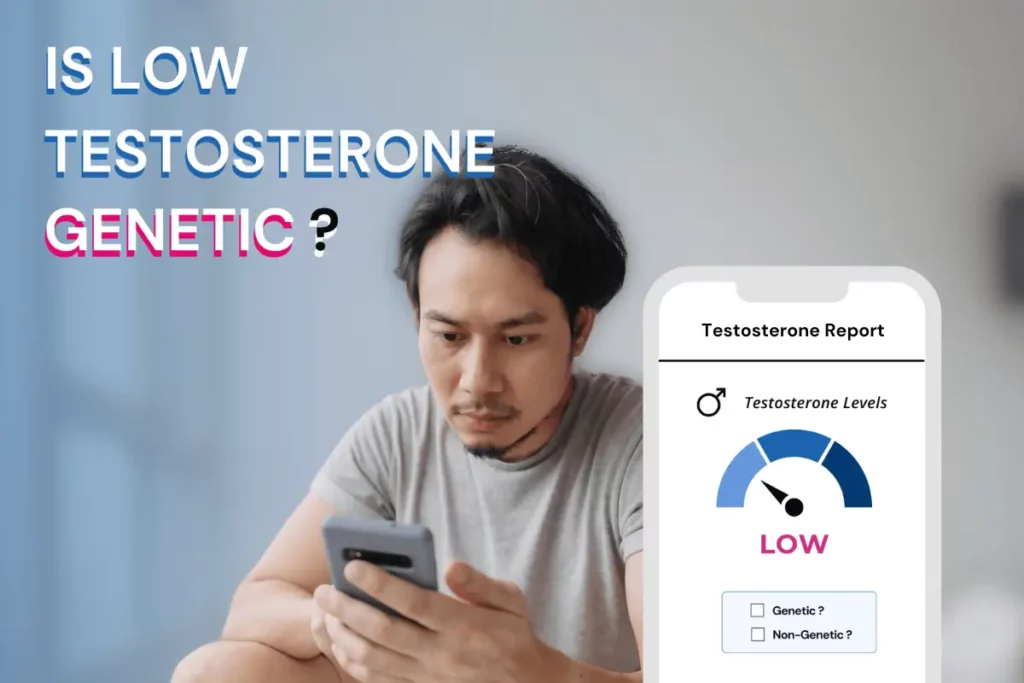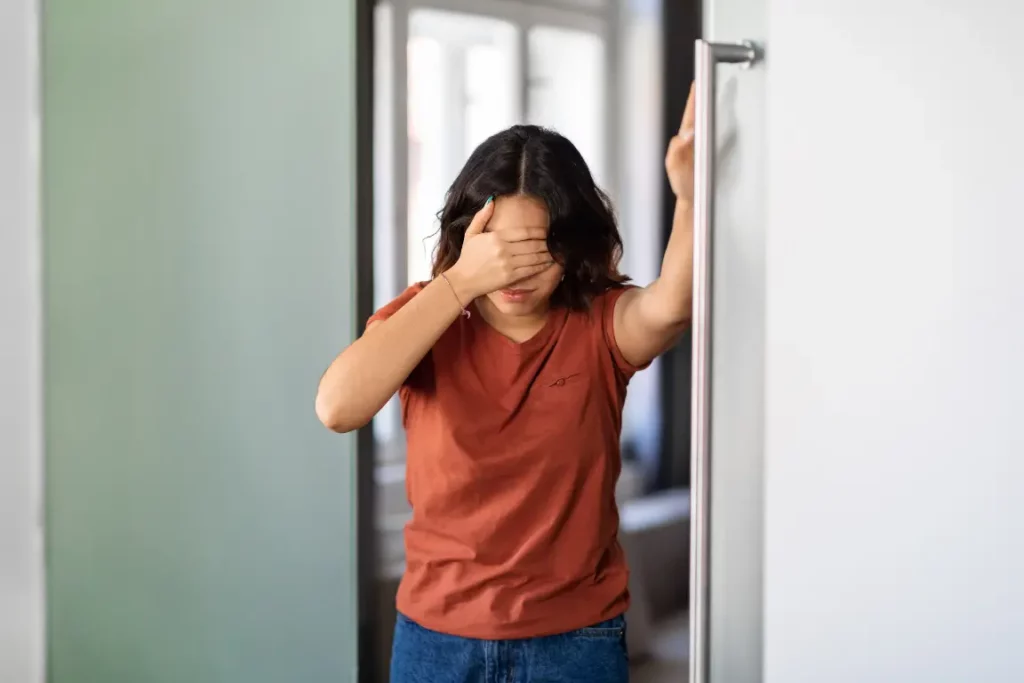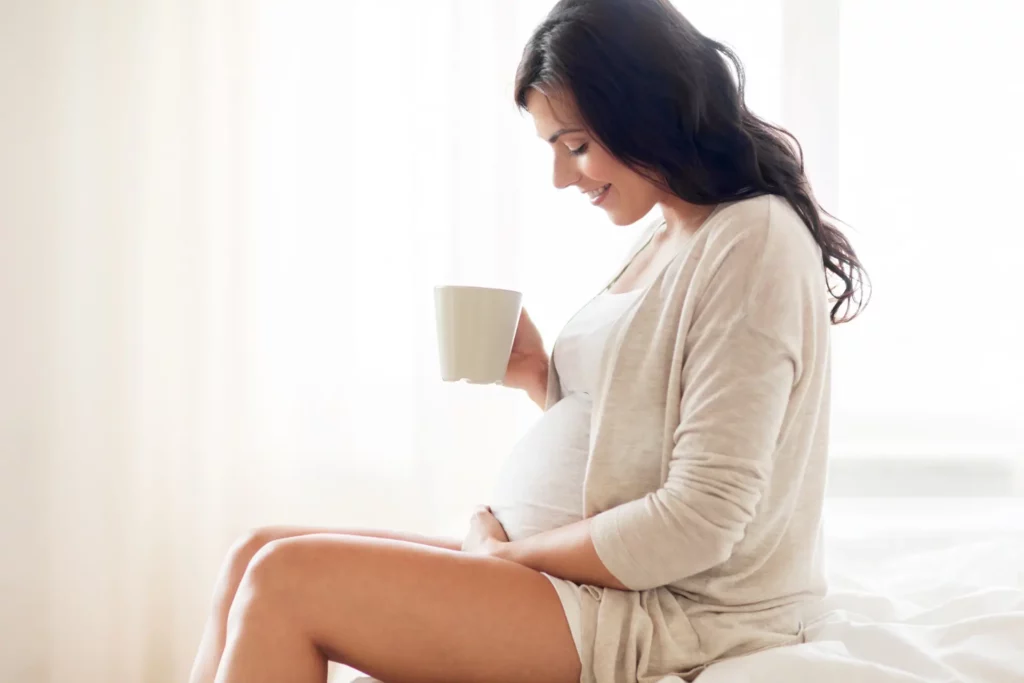We all know caffeine can give us the energy boost we need to power through our day, but could it also influence our hormones unexpectedly? Specifically, does caffeine impact testosterone levels, the hormone essential for muscle development, energy, and sexual well-being? The truth is that the relationship between caffeine and testosterone is more complex than you might think. While some studies suggest it could provide a slight boost, others indicate it might lower testosterone levels. This evidence-based review analyzes how caffeine affects testosterone, fertility, and erectile function, offering expert insights into its health and performance outcomes.
Effect Of Caffeine On Fertility
Caffeine has been studied for its impact on fertility, with mixed results across both male and female fertility studies.
Male Fertility
In males, studies have shown that caffeine from coffee, tea, or cocoa drinks does not significantly affect semen quality, including sperm count or concentration.
Meanwhile, caffeine from cola and soft drinks has been linked to lower semen volume and concentration.
Caffeine consumption was also associated with sperm DNA damage, including aneuploidy and DNA breaks, which may negatively impact male fertility.
Additionally, male coffee intake was associated with extended time to conception for couples.
Female Fertility
For females, higher caffeine intake, particularly between 300 mg and 600 mg daily, has been associated with an increased risk of miscarriage.
The risk rises by 37% at 300 mg and 132% at 600 mg daily.
However, no clear association was found between caffeine consumption and natural fertility or fertility treatment outcomes, such as clinical pregnancy or live birth rates.
Does Caffeine Affect Testosterone Levels?
The effect of caffeine on testosterone levels is complex and influenced by factors like dosage, duration of consumption, and individual differences.
Studies On Caffeine And Testosterone Levels
NHANES Study: The Effect Of Caffeine On Testosterone In Males
Using data from 372 adult males in the 2013–2014 NHANES survey, the study investigated how caffeine affects testosterone levels in males.
It found that higher caffeine intake was linked to lower testosterone levels.
Some caffeine byproducts, such as 5-methyluric acid, were particularly associated with lower testosterone.
On the other hand, 7-methylxanthine seemed to raise testosterone levels.
These results indicate that caffeine could lower testosterone, but more research is needed to clarify the mechanisms behind this effect.

Caffeine And Exercise: Effects On Testosterone And Cortisol In Athletes
This study examined how caffeine affects testosterone and cortisol levels in professional athletes during exercise.
Rugby players took different amounts of caffeine (from 0 to 800 mg) before working out.
The results showed that caffeine caused a small increase in testosterone during exercise. At the highest dose (800 mg), testosterone went up by 21%.
However, this was also linked to a significant rise in cortisol, a stress hormone, which can work against the benefits of increased testosterone.
Higher cortisol levels lead to a reduced testosterone-to-cortisol ratio, which may limit the effectiveness of caffeine in boosting testosterone.
While caffeine can help with performance, the cortisol spike might limit these benefits.
Effects Of Caffeinated And Decaffeinated On Sex Hormones: A Controlled Trial
This 8-week randomized controlled trial examined how caffeinated and decaffeinated coffee affects hormones in healthy adults.
After the 8 weeks, no significant changes were found in any of the results, including testosterone levels, from coffee consumption. However, at the 4-week mark, there were some notable differences:
- Decaffeinated coffee increased sex hormone-binding globulin (SHBG) in females but not in males.
- In males, caffeinated coffee increased total testosterone and decreased total and free estradiol.
- In females, decaffeinated coffee decreased total and free testosterone, while caffeinated coffee lowered total testosterone.
Summary: Effect Of Caffeine On Testosterone Results
- Caffeine does not significantly lower testosterone in healthy adult males.
- Some studies note a slight, temporary rise in testosterone following caffeine consumption, especially around exercise.
- Long-term or chronic coffee consumption has been associated with small (often negligible) differences in testosterone levels in observational studies.
Thus, further research is needed to clarify these associations and understand the underlying biological mechanisms.
What’s The Relationship Between Caffeine Withdrawal And Testosterone Levels?
Caffeine withdrawal's impact on testosterone levels is generally minimal and indirect.
Although some studies indicate that caffeine may temporarily boost testosterone, quitting coffee is unlikely to cause a significant decrease in levels.
The primary way withdrawal could affect testosterone is through increased stress, as the symptoms can raise cortisol levels.
Prolonged high cortisol can interfere with testosterone production, but this effect is usually temporary and fades as the body adapts to being caffeine-free.
Caffeine And Testosterone: Expert Take
Insights from healthcare professionals reveal how caffeine impacts testosterone levels.
| Andrew Huberman, Ph.D. (neuroscientist and podcaster at Stanford) |
| "Caffeine can slightly raise SHBG, which may reduce free testosterone levels. However, the impact is minor and doesn't exceed the benefits of proper caffeine consumption, enhancing mental and physical performance." |
| Dr. Jolene Brighten, NMD (naturopath and women's hormone expert) |
| "While studies on men suggest caffeine may lower testosterone levels, the impact on women is less clear. Some studies show caffeine could reduce testosterone in women but increase it in men. Overall, the results are mixed, and whether caffeine lowers testosterone likely depends on the individual." |
| Dr. Sam Robbins (anti-aging and hormone specialist) |
| "Caffeine can trigger a rise in stress hormones like cortisol and adrenaline, which decreases testosterone and can result in a decrease in erections." |
Does Caffeine Affect Other Hormones?
Caffeine's influence extends to several other hormones, including:
- Adrenaline: Caffeine stimulates the release of adrenaline (epinephrine), which increases heart rate and alertness.
- Dopamine: Caffeine can increase dopamine production, the neurotransmitter linked to pleasure, motivation, and focus.
- Estrogen: Caffeine has been found to influence estrogen levels, with the impact varying according to gender, age, and hormonal conditions.
- Leptin: Caffeine may influence leptin, a hormone that regulates appetite, potentially reducing hunger, though it's still unclear if it directly affects leptin levels.
Optimizing Caffeine Intake For Better Health
Enjoying coffee doesn't have to come at the cost of your health—simple strategies can help you optimize its intake:
- Choose organic coffee to minimize pesticide exposure.
- Grind your beans fresh to maximize flavor and antioxidants.
- Avoid adding sugar to prevent blood sugar spikes.
- Limit yourself to one cup of coffee in the morning to avoid overstimulation and promote balanced energy.
- Consume a breakfast containing protein and healthy fats to balance blood sugar and ease caffeine's digestive effects.
Note: These are general tips, and caffeine’s effects may vary from person to person. For any concerns, it’s advisable to consult a healthcare provider.
FAQs: Caffeine And Testosterone Levels
Does Caffeine Increase Testosterone?
Caffeine may have a minimal effect on testosterone levels. Some evidence suggests a slight increase during exercise, with a 21% rise at high doses.
However, other findings indicate that caffeine's byproducts could decrease testosterone.
The overall effect varies between individuals, and more research is needed to understand its precise influence on testosterone.
Does Quitting Coffee Lower Testosterone?
Quitting coffee is not likely to cause a significant decrease in testosterone levels.
The connection between caffeine and testosterone is complex, with studies like the NHANES study by Lopez et al. showing non-linear associations.
This means the effect of caffeine on testosterone can vary depending on factors like consumption levels and individual variations.
Does Caffeine Affect Erections?
Caffeine may enhance erectile function by improving blood flow to the penis.
Studies suggest that moderate coffee consumption—about 2 to 3 cups a day—can help males get and sustain an erection.
Drinking 85-170 milligrams of caffeine each day is linked to a 42% lower risk of erectile dysfunction (ED).
Males who consume 171-303 milligrams daily have a 39% lower chance of ED compared to those who don’t drink caffeine.
This positive effect could be due to caffeine’s ability to relax the arteries and smooth muscles in the penis, which boosts circulation.
Additionally, caffeine may increase testosterone levels, an essential factor since low testosterone is often linked to ED.
However, some recent studies have found no clear connection between caffeine and ED, indicating that the effects may vary from person to person.
What Hormones Does Caffeine Block?
Caffeine doesn't directly block hormones in the way a medication might. Instead, it interacts with your body in ways that can influence hormone levels.
Some hormones that caffeine can affect include:
- Adenosine: Caffeine blocks adenosine receptors, reducing feelings of tiredness and increasing alertness.
- Insulin: Caffeine can reduce insulin sensitivity, affecting blood sugar regulation.
- Melatonin: Caffeine can interfere with melatonin production, the hormone that helps regulate sleep, which may result in disrupted sleep patterns.
What Lowers Testosterone The Most?
Several factors can significantly lower testosterone, including:
- Aging, which often causes a gradual decline in testosterone over time
- Certain medications, like opioids and steroids, might interfere with the production of testosterone
- Pituitary gland disorders, such as tumors or injuries that can disrupt testosterone levels
- High body fat, which can negatively impact testosterone
- Chronic stress, which can cause hormonal imbalances and reduce testosterone
- Genetic disorders, such as Klinefelter syndrome or undescended testicles, are linked to lower testosterone
- Testicular issues, including injuries, cancer, or treatments like radiation that might damage testosterone-producing cells
Summary
Caffeine’s impact on testosterone is complex, with studies showing mixed results.
Some evidence suggests it can temporarily boost testosterone during exercise, while other findings indicate caffeine’s byproducts may lower testosterone in males.
Caffeine can negatively affect male fertility by reducing sperm quality and DNA health. In females, high caffeine intake elevates the risk of miscarriage.
Moderate caffeine consumption may improve erectile function and lower the risk of ED.
Caffeine withdrawal can cause temporary stress and elevated cortisol but doesn’t significantly lower testosterone.
The overall effects of caffeine on hormones vary based on individual factors, dosage, and lifestyle.
Others Are Also Reading

Is Low Testosterone Genetic?

Can Caffeine Cause Dizziness? Tips To Avoid Side Effects

How Much Caffeine Is Safe During Pregnancy?
References
https://pmc.ncbi.nlm.nih.gov/articles/PMC5482951
https://pmc.ncbi.nlm.nih.gov/articles/PMC5733907
https://pmc.ncbi.nlm.nih.gov/articles/PMC9112543
https://pubmed.ncbi.nlm.nih.gov/18458357
https://pmc.ncbi.nlm.nih.gov/articles/PMC3502342
https://pmc.ncbi.nlm.nih.gov/articles/PMC2257922
https://ai.hubermanlab.com/s/848d01de-6c88-11ef-a5a9-2b312bd75228
https://drbrighten.com/how-coffee-affects-your-health-and-hormones
https://www.betterhealth.vic.gov.au/health/healthyliving/caffeine
https://pmc.ncbi.nlm.nih.gov/articles/PMC6758129
https://pmc.ncbi.nlm.nih.gov/articles/PMC6298130
https://journals.plos.org/plosone/article?id=10.1371/journal.pone.0123547
https://jhpn.biomedcentral.com/articles/10.1186/s41043-024-00645-w
https://www.acs.org/education/chemmatters/past-issues/archive-2013-2014/caffeine.html
https://www.webmd.com/diabetes/diabetes-and-caffeine
https://pubmed.ncbi.nlm.nih.gov/14592218
https://www.healthline.com/health/testosterone-killing-foods





